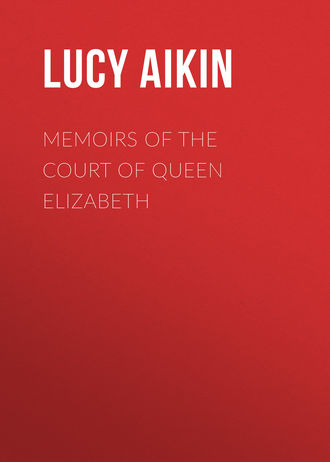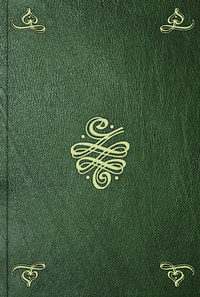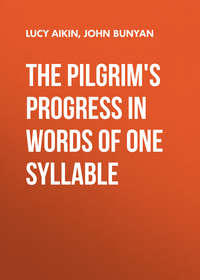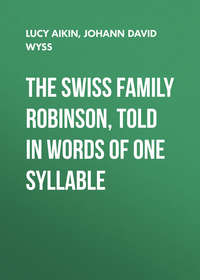 полная версия
полная версияMemoirs of the Court of Queen Elizabeth
Under these circumstances Cromwel began to look on all sides for support; and recollecting with regret the powerful influence exerted by Anne Boleyn in favor of the good cause, and even the gentler and more private aid lent to it by the late queen, he planned a new marriage for his sovereign, with a lady educated in the very bosom of the protestant communion. Political considerations favored the design; since a treaty lately concluded between the emperor and the king of France rendered it highly expedient that Henry, by way of counterpoise, should strengthen his alliance with the Smalcaldic league. In short, Cromwel prevailed. Holbein, whom the king had appointed his painter on the recommendation of sir Thomas More, and still retained in that capacity, was sent over to take the portrait of Anne sister of the duke of Cleves; and rashly trusting in the fidelity of the likeness, Henry soon after solicited her hand in marriage.
"The lady Anne," says a historian, "understood no language but Dutch, so that all communication of speech between her and our king was intercluded. Yet our embassador, Nicholas Wotton doctor of law, employed in the business, hath it, that she could both read and write in her own language, and sew very well; only for music, he said, it was not the manner of the country to learn it7." It must be confessed that for a princess this list of accomplishments appears somewhat scanty; and Henry, unfortunately for the lady Anne, was a great admirer of learning, wit and talents, in the female sex, and a passionate lover of music, which he well understood. What was still worse, he piqued himself extremely on his taste in beauty, and was much more solicitous respecting the personal charms of his consorts than is usual with sovereigns;
and when, on the arrival of his destined bride in England, he hastened to Rochester to gratify his impatience by snatching a private view of her, he found that in this capital article he had been grievously imposed upon. The uncourteous comparison by which he expressed his dislike of her large and clumsy person is well known. Bitterly did he lament to Cromwel the hard fortune which had allotted him so unlovely a partner, and he returned to London very melancholy. But the evil appeared to be now past remedy; it was contrary to all policy to affront the German princes by sending back their countrywoman after matters had gone so far, and Henry magnanimously resolved to sacrifice his own feelings, once in his life, for the good of his country. Accordingly, he received the princess with great magnificence and with every outward demonstration of satisfaction, and was married to her at Greenwich in January 1540.
Two or three months afterwards, the king, notwithstanding his secret dissatisfaction, rewarded Cromwel for his pains in concluding this union by conferring on him the vacant title of earl of Essex;—a fatal gift, which exasperated to rage the mingled jealousy and disdain which this low-born and aspiring minister had already provoked from the ancient nobility, by intruding himself into the order of the garter, and which served to heap upon his devoted head fresh coals of wrath against the day of retribution which was fast approaching. The act of transferring this title to a new family, could in fact be no otherwise regarded by the great house of Bourchier, which had long enjoyed it, than either as a marked indignity to itself, or as a fresh result of the general Tudor system of depressing and discountenancing the blood of the Plantagenets, from which the Bourchiers, through a daughter of Thomas of Woodstock, were descended. The late earl had left a married daughter, to whom, according to the customary courtesy of English sovereigns in similar circumstances, the title ought to have been continued; and as this lady had no children, the earl of Bath, as head of the house, felt himself also aggrieved by the alienation of family honors which he hoped to have seen continued to himself and his posterity.
In honor, probably, of the recent marriage of the king, unusually splendid justs were opened at Westminster on May-day; in which the challengers were headed by sir John Dudley, and the defenders by the earl of Surry. This entertainment was continued for several successive days, during which the challengers, according to the costly fashion of ancient hospitality, kept open house at their common charge, and feasted the king and queen, the members of both houses, and the lord-mayor and aldermen with their wives.
But scenes of pomp and festivity had no power to divert the thoughts of the king from his domestic grievance,—a wife whom he regarded with disgust: on the contrary, it is probable that this season of courtly revelry encreased his disquiet, by giving him opportunities of beholding under the most attractive circumstances the charms of a youthful beauty whom he was soon seized with the most violent desire of placing beside him on the throne which he judged her worthy to adorn.
No considerations of rectitude or of policy could longer restrain the impetuous monarch from casting off the yoke of a detested marriage: and as a first step towards emancipation, he determined to permit the ruin of its original adviser, that unpopular minister, but vigorous and serviceable instrument of arbitrary power, whom he had hitherto defended with pertinacity against all attacks.
No sooner was the decline of his favor perceived, and what so quickly perceived at courts? than the ill-fated Cromwel found himself assailed on every side. His active agency in the suppression of monasteries had brought upon him, with the imputation of sacrilege, the hatred of all the papists;—a certain coldness, or timidity, which he had manifested in the cause of religious reformation in other respects, and particularly the enactment of the Six Articles during his administration, had rendered him an object of suspicion or dislike to the protestants;—in his new and undefined office of royal vicegerent for the exercise of the supremacy, he had offended the whole body of the clergy;—and he had just filled up the measure of his offences against the nobility by procuring a grant of the place of lord high-steward, long hereditary in the great house of the Veres earls of Oxford. The only voice raised in his favor was that of Cranmer, who interceded with Henry in his behalf in a letter eloquent, touching, and even courageous, times and persons considered. Gardiner and the duke of Norfolk urged on his accusation; the parliament, with its accustomed subserviency, proceeded against him by attainder; and having voted him guilty of heresy and treason, left it in the choice of the king to bring him either to the block or the stake for whichever he pleased of these offences; neither of which was proved by evidence, or even supported by reasonable probabilities. But against this violation in his person of the chartered rights of Englishmen, however flagrant, the unfortunate earl of Essex had forfeited all right to appeal, since it was himself who had first advised the same arbitrary mode of proceeding in the cases of the marchioness of Exeter, of the countess of Salisbury, and of several persons of inferior rank connected with them; on whom capital punishment had already been inflicted.
With many private virtues, Essex, like his great master Wolsey, and like the disgraced ministers of despotic princes in general, perished unpitied; and the king and the faction of Gardiner and of the Howards seemed equally to rejoice in the free course opened by his removal to their further projects. The parliament was immediately ordered to find valid a certain frivolous pretext of a prior contract, on which its master was pleased to demand a divorce from Ann of Cleves; and the marriage was unanimously declared null, without any opportunity afforded to the queen of bringing evidence in its support.
The fortitude, or rather phlegm, with which her unmerited degradation was supported by the lady Anne, has in it something at once extraordinary and amusing. There is indeed a tradition that she fainted on first receiving the information that her marriage was likely to be set aside; but the shock once over, she gave to the divorce, without hesitation or visible reluctance, that assent which was required of her. Taking in good part the pension of three thousand pounds per annum, and the title of his sister which her ex-husband was graciously pleased to offer her, she wrote to her brother the elector to entreat him still to live in amity with the king of England, against whom she had no ground of complaint; and she continued, till the day of her death, to make his country her abode. Through the whole affair she gave no indication of wounded pride; unless her refusal to return in the character of a discarded and rejected damsel, to the home which she had so lately quitted in all the pomp and triumph of a royal bride, is to be regarded as such. But even for this part of her conduct a different motive is with great plausibility assigned by a writer, who supposes her to have been swayed by the prudent consideration, that the regular payment of her pension would better be secured by her remaining under the eyes and within the protection of the English nation.
A very few weeks after this apparently formidable business had been thus readily and amicably arranged, Catherine Howard niece to the duke of Norfolk, and first cousin to Anne Boleyn, was declared queen. This lady, beautiful, insinuating, and more fondly beloved by the king than any of her predecessors, was a catholic, and almost all the members of the council who now possessed office or influence were attached, more or less openly, to the same communion. In consequence, the penalties of the Six Articles were enforced with great cruelty against the reformers; but this did not exempt from punishment such as, offending on the other side, ventured to deny the royal supremacy; the only difference was, that the former class of culprits were burned as heretics, the latter hanged as traitors.
The king soon after seized the occasion of a trifling insurrection in Yorkshire, of which sir John Nevil was the leader, to complete his vengeance against cardinal Pole, by bringing to a cruel and ignominious end the days of his venerable and sorrow-stricken mother, who had been unfortunate enough thus long to survive the ruin of her family. The strange and shocking scene exhibited on the scaffold by the desperation of this illustrious and injured lady, is detailed by all our historians: it seems almost incredible that the surrounding crowd were not urged by an unanimous impulse of horror and compassion to rush in and rescue from the murderous hands of the executioner the last miserable representative of such a line of princes. But the eyes of Henry's subjects were habituated to these scenes of blood; and they were viewed by some with indifference, and by the rest with emotions of terror which effectually repressed the generous movements of a just and manly indignation.
In public causes, to be accused and to suffer death were now the same thing; and another eminent victim of the policy of the English Tiberius displayed in a novel and truly portentous manner his utter despair of the justice of the country and the mercy of his sovereign.
Lord Leonard Grey, late deputy of Ireland, was accused of favouring the escape of that persecuted child his nephew Gerald Fitzgerald, of corresponding with cardinal Pole, and of various other offences called treasonable. Being brought before a jury of knights, "he saved them," says lord Herbert, "the labour of condemning him, and without more ado confessed all. Which, whether this lord, who was of great courage, did out of desperation or guilt, some circumstances make doubtful; and the rather, that the articles being so many, he neither denied nor extenuated any of them, though his continual fighting with the king's enemies, where occasion was, pleaded much on his part. Howsoever, he had his head cut off8."
The queen and her party were daily gaining upon the mind of the king; and Cranmer himself, notwithstanding the high esteem entertained for him by Henry, had begun to be endangered by their machinations, when an unexpected discovery put into his hands the means of baffling all their designs, and producing a total revolution in the face of the court.
It was towards the close of the year 1541 that private information was conveyed to the primate of such disorders in the conduct of the queen before her marriage as could not fail to plunge her in infamy and ruin. Cranmer, if not exceedingly grieved, was at least greatly perplexed by the incident:—at first sight there appeared to be equal danger in concealing or discovering circumstances of a nature so delicate, and the archbishop was timid by nature, and cautious from the experience of a court. At length, all things well weighed, he judiciously preferred the hazard of making the communication at once, without reserve, and directly, to the person most interested; and, forming into a narrative facts which his tongue dared not utter to the face of a prince whose anger was deadly, he presented it to him and entreated him to peruse it in secret.
Love and pride conspired to persuade the king that his Catherine was incapable of having imposed upon him thus grossly, and he at once pronounced the whole story a malicious fabrication; but the strict inquiry which he caused to be instituted for the purpose of punishing its authors, not only established the truth of the accusations already brought, but served also to throw the strongest suspicions on the conjugal fidelity of the queen.
The agonies of Henry on this occasion were such as in any other husband would have merited the deepest compassion: with him they were quickly succeeded by the most violent rage; and his cry for vengeance was, as usual, echoed with alacrity by a loyal and sympathizing parliament. Party animosity profited by the occasion and gave additional impulse to their proceedings. After convicting by attainder the queen and her paramours, who were soon after put to death, the two houses proceeded also to attaint her uncle, aunt, grandmother, and about ten other persons, male and female, accused of being accessary or privy to her disorders before marriage, and of not revealing them to the king when they became acquainted with his intention of making her his consort; an offence declared to be misprision of treason by an ex post facto law. But this was an excess of barbarity of which Henry himself was ashamed: the infamous lady Rochford was the only confident who suffered capitally; the rest were released after imprisonments of longer or shorter duration; yet a reserve of bitterness appears to have remained stored up in the heart of the king against the whole race of Howard, which the enemies of that illustrious house well knew how to cherish and augment against a future day.
CHAPTER III
1542 TO 1547Rout of Solway and death of James V. of Scotland.—Birth of queen Mary.—Henry projects to marry her to his son.—Offers the hand of Elizabeth to the earl of Arran.—Earl of Lenox marries lady M. Douglas.—Marriage of the king to Catherine Parr.—Her person and acquirements.—Influence of her conduct on Elizabeth.—Henry joins the emperor against Francis I.—His campaign in France.—Princess Mary replaced in order of succession, and Elizabeth also.—Proposals for a marriage between Elizabeth and Philip of Spain.—The duke of Norfolk and earl of Hertford heads of the catholic and protestant parties. Circumstances which give a preponderance to the latter.—Disgrace of the duke.—Trial of the earl of Surry.—His death and character.—Sentence against the duke of Norfolk.—Death of Henry.
In the month of December 1542, shortly after the rout of Solway, in which the English made prisoners the flower of the Scottish nobility, the same messenger brought to Henry VIII. the tidings that the grief and shame of this defeat had broken the heart of king James V., and that his queen had brought into the world a daughter, who had received the name of Mary, and was now queen of Scotland. Without stopping to deplore the melancholy fate of a nephew whom he had himself brought to destruction, Henry instantly formed the project of uniting the whole island under one crown, by the marriage of this infant sovereign with the prince his son. All the Scottish prisoners of rank then in London were immediately offered the liberty of returning to their own country on the condition, to which they acceded with apparent alacrity, of promoting this union with all their interest; and so confident was the English monarch in the success of his measures, that previously to their departure, several of them were carried to the palace of Enfield, where young Edward then resided, that they might tender homage to the future husband of their queen.
The regency of Scotland at this critical juncture was claimed by the earl of Arran, who was generally regarded as next heir to the crown, though his legitimacy had been disputed; and to this nobleman,—but whether for himself or his son seems doubtful,—Henry, as a further means of securing the important object which he had at heart, offered the hand of his daughter Elizabeth. So early were the concerns and interests blended, of two princesses whose celebrated rivalry was destined to endure until the life of one of them had become its sacrifice! So remarkably, too, in this first transaction was contrasted the high preeminence from which the Scottish princess was destined to hurl herself by her own misconduct, with the abasement and comparative insignificance out of which her genius and her good fortune were to be employed in elevating the future sovereign of England.
Born in the purple of her hereditary kingdom, the monarchs of France and England made it an object of eager contention which of them should succeed in encircling with a second diadem the baby brows of Mary; while the hand of Elizabeth was tossed as a trivial boon to a Scottish earl of equivocal birth, despicable abilities, and feeble character. So little too was even this person flattered by the honor, or aware of the advantages, of such a connection, that he soon after renounced it by quitting the English for the French party. Elizabeth in consequence remained unbetrothed, and her father soon afterwards secured to himself a more strenuous ally in the earl of Lenox, also of the blood-royal of Scotland, by bestowing upon this nobleman the hand, not of his daughter, but of his niece the lady Margaret Douglas.
Undeterred by his late severe disappointment Henry was bent on entering once more into the marriage state, and his choice now fell on Catherine Parr, sprung from a knightly family possessed of large estates in Westmoreland, and widow of lord Latimer, a member of the great house of Nevil.
A portrait of this lady still in existence, exhibits, with fine and regular features, a character of intelligence and arch simplicity extremely captivating. She was indeed a woman of uncommon talent and address; and her mental accomplishments, besides the honor which they reflect on herself, inspire us with respect for the enlightened liberality of an age in which such acquirements could be placed within the ambition and attainment of a private gentlewoman, born in a remote county, remarkable even in much later times for a primitive simplicity of manners and domestic habits. Catherine was both learned herself, and, after her elevation a zealous patroness of learning and of protestantism, to which she was become a convert. Nicholas Udal master of Eton was employed by her to translate Erasmus's paraphrase of the four gospels; and there is extant a Latin letter of hers to the princess Mary, whose conversion from popery she seems to have had much at heart, in which she entreats her to permit this work to appear under her auspices. She also printed some prayers and meditations, and there was found among her papers, after her death, a piece entitled "The lamentations of a sinner bewailing her blind life," in which she deplores the years that she had passed in popish observances, and which was afterwards published by secretary Cecil.
It is a striking proof of the address of this queen, that she conciliated the affection of all the three children of the king, letters from each of whom have been preserved addressed to her after the death of their father.
Elizabeth in particular maintained with her a very intimate and frequent intercourse; which ended however in a manner reflecting little credit on either party, as will be more fully explained in its proper place.
The adroitness with which Catherine extricated herself from the snare in which her own religious zeal, the moroseness of the king, and the enmity of Gardiner had conspired to entangle her, has often been celebrated. May it not be conjectured, that such an example, given by one of whom she entertained a high opinion, might exert no inconsiderable influence on the opening mind of Elizabeth, whose conduct in the many similar dilemmas to which it was her lot to be reduced, partook so much of the same character of politic and cautious equivocation?
Henry discovered by experiment that it would prove a much more difficult matter than he had apprehended to accomplish, either by force or persuasion, the marriage of young Edward with the queen of Scots; and learning that it was principally to the intrigues of Francis I., against whom he had other causes also of complaint, that he was likely to owe the disappointment of this favourite scheme, he determined on revenge. With this design he turned his eyes on the emperor; and finding Charles perfectly well disposed to forget all ancient animosities in sympathy with his newly-conceived indignation against the French king, he entered with him into a strict alliance. War was soon declared against France by the new confederates; and after a campaign in which little was effected, it was agreed that Charles and Henry, uniting their efforts, should assail that kingdom with a force which it was judged incapable of resisting, and without stopping at inferior objects, march straight to Paris. Accordingly, in July 1544, preceded by a fine army, and attended by the flower of his nobility splendidly equipped, Henry took his departure for Calais in a ship the sails of which were made of cloth of gold.
He arrived in safety, and enjoyed the satisfaction of dazzling with his magnificence the count de Buren whom the emperor sent with a body of horse to meet him; quarrelled soon after with that potentate, who found it his interest to make a separate peace; took the towns of Montreuil and Boulogne, neither of them of any value to him, and returned.
So foolish and expensive a sally of passion, however characteristic of the disposition of this monarch, would not merit commemoration in this place, but for the important influence which it unexpectedly exerted on the fortune and expectations of Elizabeth through the following train of circumstances.
The emperor, whose long enmity with Henry had taken its rise from what he justly regarded as the injuries of Catherine of Arragon his aunt, in whose person the whole royal family of Spain had been insulted, had required of him as a preliminary to their treaty a formal acknowledgement of the legitimacy of his daughter Mary. This Henry could not, with any regard to consistency, grant; but desirous to accede as far as he conveniently could to the wishes of his new ally, he consented to stipulate, that without any explanation on this point, his eldest daughter should by act of parliament be reinstated in the order of succession. At the same time, glad to relent in behalf of his favorite child, and unwilling perhaps to give the catholic party the triumph of asserting that he had virtually declared his first marriage more lawful than his second, he caused a similar privilege to be extended to Elizabeth, who was thus happily restored to her original station and prospects, before she had attained sufficient maturity of age to suffer by the cruel and mortifying degradation to which she had been for several years subjected.
Henceforth, though the act which declared null the marriage of the king with Anne Boleyn remained for ever unrepealed, her daughter appears to have been universally recognised on the footing of a princess of England; and so completely were the old disputes concerning the divorce of Catherine consigned to oblivion, that in 1546, when France, Spain and England had concluded a treaty of peace, proposals passed between the courts of London and Madrid for the marriage of Elizabeth with Philip prince of Spain; that very Philip afterwards her brother-in-law and in adversity her friend and protector, then a second time her suitor, and afterwards again to the end of his days the most formidable and implacable of her enemies. On which side, or on what assigned objections, this treaty of marriage was relinquished, we do not learn; but as the demonstrations of friendship between Charles and Henry after their French campaign were full of insincerity, it may perhaps be doubted whether either party was ever bent in earnest on the completion of this extraordinary union.





